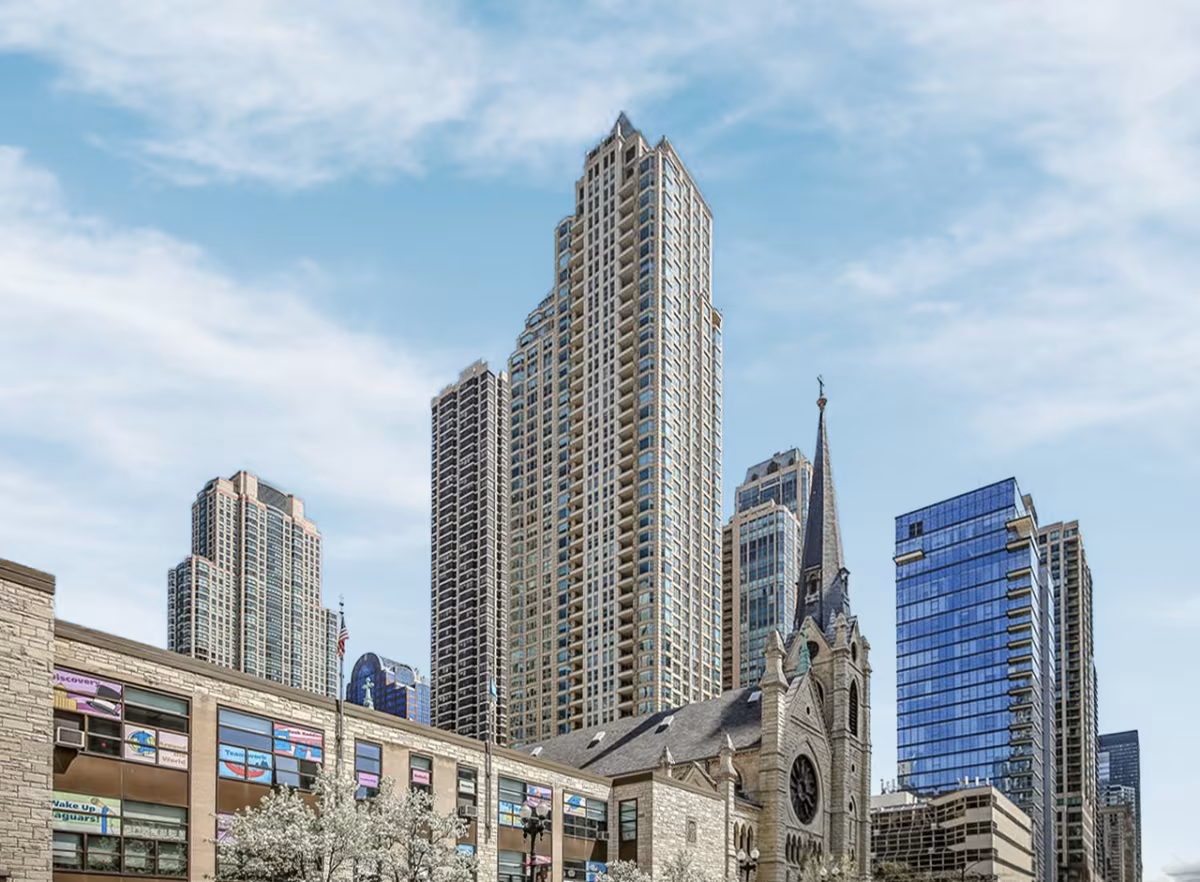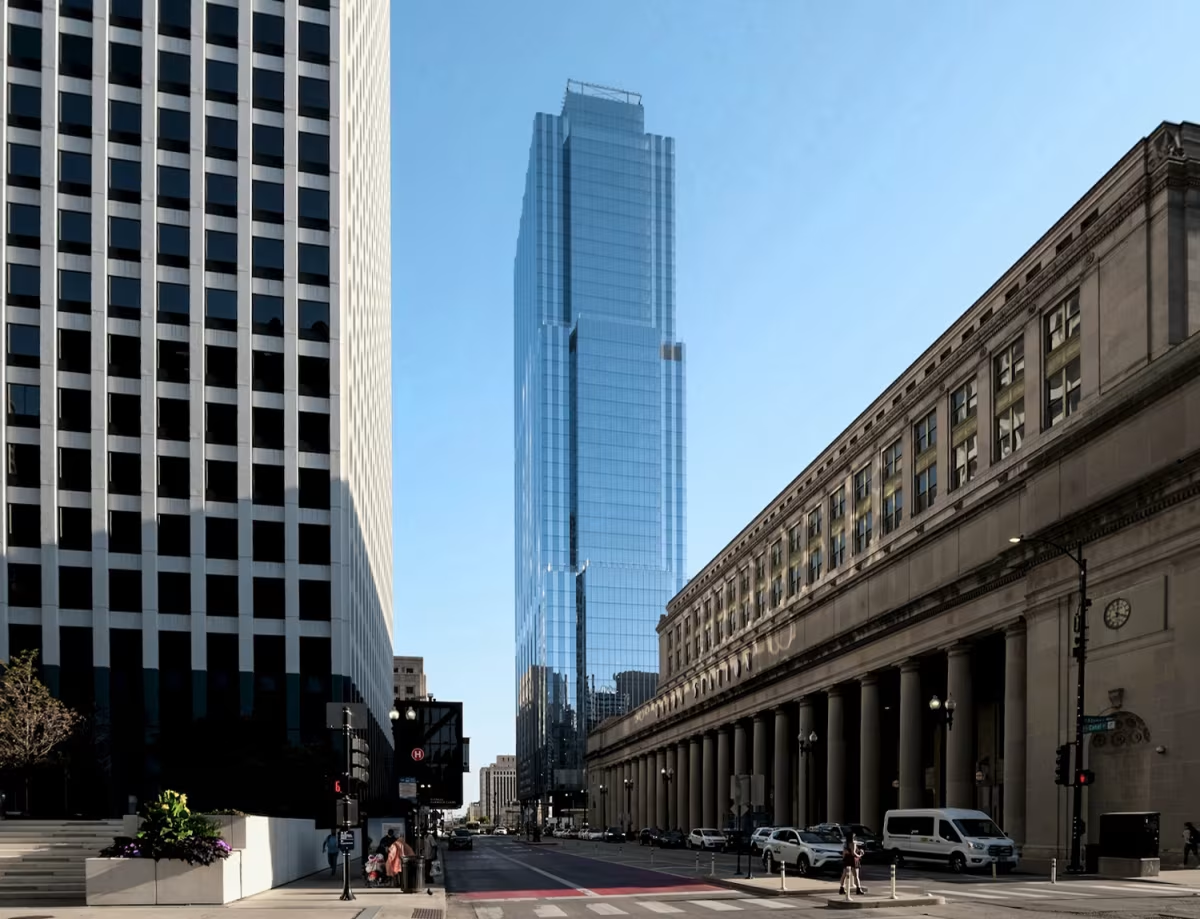The Fordham Building vs BMO Tower


Comparing the The Fordham Building and the BMO Tower is interesting because they both rise in Chicago, IL, yet they were conceived by two different design teams, Solomon Cordwell Buenz and Goettsch Partners , and were completed at different points in time. They were finished more than a decade apart.
This contrast within the same city allows us to see how different creative minds interpreted the evolving needs of Chicago across time.
Let's take a closer look!
Height & Size
The BMO Tower is clearly the larger tower of the two, both in terms of height and number of floors. It rises to 728ft (222m) with 51 floors above ground, while the The Fordham Building reaches 574ft (175m) with 50 floors above ground.
Of course, each project may have faced different briefs or regulatory constraints, which we don't really know about and could also explain the outcome.
Architectural Style
Both the The Fordham Building and the BMO Tower were designed in line with the aesthetic conventions of the Contemporary style.
At the time, this style was at the height of its popularity. So both Solomon Cordwell Buenz and Goettsch Partners followed what was in many ways expected of them, producing designs that fit comfortably within contemporary architectural norms, rather than breaking with convention.
Uses
The The Fordham Building is primarily residential, while the BMO Tower is primarily commercial.
The The Fordham Building offers 224 residential units.
The BMO Tower also provides 324 parking spaces.
Structure & Facade
Both towers share the same structural solution, a Frame system.
A frame structure uses a grid of columns and beams to carry the building's loads. This frees the walls from structural duties, allowing for flexible floor plans and larger windows.
However, when it comes to the facade, both buildings use different approaches. The The Fordham Building uses a Modular facade, while the BMO Tower uses a Curtain Wall facade.
A Modular facade like the one seen in the The Fordham Building employs prefabricated panels, often mixing solid surfaces with smaller windows, while a curtain-wall facade like the one seen in the BMO Tower uses a lightweight glass curtain wall hung from the structure.
| The Fordham Building | BMO Tower | |
|---|---|---|
| Solomon Cordwell Buenz | Architect | Goettsch Partners |
| 2001 | Construction Started | 2019 |
| 2003 | Year Completed | 2021 |
| Contemporary | Architectural Style | Contemporary |
| Residential | Current Use | Commercial |
| 50 | Floors Above Ground | 51 |
| 2 | Floors Below Ground | 2 |
| 175 m | Height (m) | 222 m |
| Frame | Structure Type | Frame |
| Yes | Facade Structural? | No |
| Concrete And Glass | Main Facade Material | Glass, Steel |
| Bennett And Brosseau | Main Contractor | Clark Construction |
| Fordham Company | Developer | Riverside Investment & Development |
| Environmental Systems Design, Inc. | MEP Engineer | Environmental Systems Design, Inc. |
| IL | State | IL |
| Chicago | City | Chicago |
| 25 E Superior St, Chicago | Address | 320 South Canal Street |